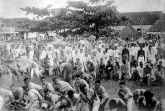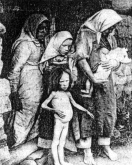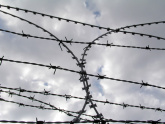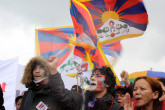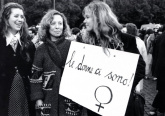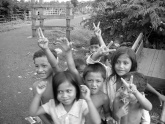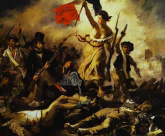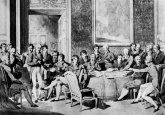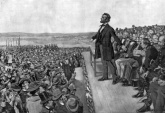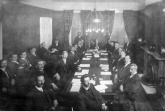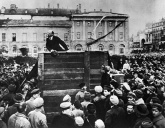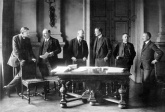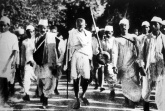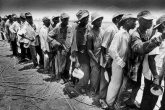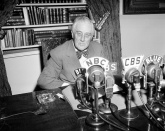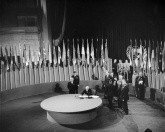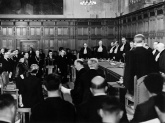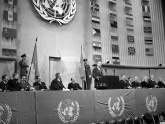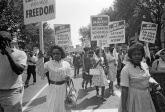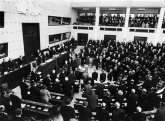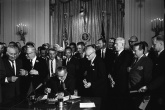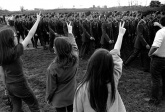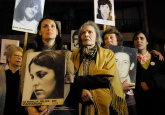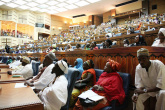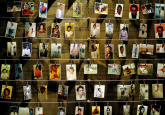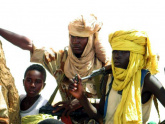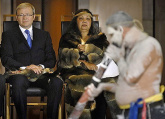The Berlin International Human Rights Congress (BIHRC)
"Human Rights and Democracy in a Globalized World - Moving Towards an International Consensus"

Human Rights Introduction
1789-2010
In August 1798, born from the tumult of the French Revolution, the Declaration of the Rights of Man and the Citizen took the first step towards enshrining in law the concept that the individual and collective rights of man were universal and subject to protection. Though a product of the philosophical developments of the eighteenth-century enlightenment and limited in its scope to protecting the rights of male, French citizens, the Declaration can be considered the first attempt to politically redress the denial of man’s natural freedoms. In the two centuries since the French Revolution, the attempt to expand the conception of human rights to encompass a universal standard and to protect those rights from abuse is ongoing. Internationally, we have witnessed moments of advance, but also of regression in the protection of personal freedoms and civil liberties throughout the world.Spanning a century and the Atlantic Ocean, the fight to abolish slavery shaped the nineteenth-century. From 1815, when the Congress of Vienna condemned the international slave trade, to 1865, when the thirteenth amendment was finally passed into law in the United States of America, individuals and organisations sought to gain support for the abolition of an institution that denied the very humanity of those labelled ‘slave’. In England, William Wilberforce worked tirelessly for the support of the British government in banning the slave trade in the British Empire, a motion approved by the British Parliament in 1807. In the Americas, the issue of slavery split a nation, contributing to a Civil War that found partial resolution in Lincoln’s Gettysburg Address and a reiteration of the principles of the American Revolution.
During the first decades of the twentieth-century, increasing industrialisation in the countries of Old Europe and North America marked the century with its progress. Whilst Marx and Engels had already highlighted the worker’s struggle in their 1848 Communist Manifesto, it was not until 1917, when Lenin stood up to declare, ‘Peace, Bread and Land’, that the worker’s struggle was given both a revolutionary and a political voice. It was one that would reverberate throughout the rest of the twentieth-century, focusing attention not only upon the exploited of Europe, but also upon those other victims of the industrial age; the populations of Africa and Asia.
Imperialism left a contested legacy for the continents of both Africa and Asia. From 1900 to 1915 a wave of uprisings occurred amongst the colonized peoples of Africa, culminating in a move towards independence that saw Ghana achieve the right to self-rule in 1957. In India, the desire of colonised peoples to rule themselves without imperial exploitation was peacefully expressed by Ghandi when, in 1930, he led a march to Dandi to protest the salt tax imposed by the foreign British Government.
Throughout the twentieth-century, some advances have been made towards the universal protection of Human Rights and Civil Liberties. The devastation caused by the First and Second World Wars and the genocides and regional conflicts that have marred the twentieth and the twenty-first centuries have prompted the establishment of international organizations for the mitigation of violent conflict and the protection of Human Rights. The United Nations was founded in 1945 with the aim of promoting global peace and the protection of Human Rights worldwide. In 1955 Martin Luther King Jr. articulated a dream for equality in the United States that was partially realized in 1964, when the Omnibus Civil Rights Bill banned discrimination in voting, jobs and public accommodation – the same year that Martin Luther King Jr. was awarded the Nobel Peace prize.
Whilst the 1970s saw an increasing focus upon redressing human rights abuses, with movements against apartheid in South Africa, genocide in Cambodia and the torture of political opponents in Chile, many instances of exclusion and repression remain in the world today. The fall of the Berlin wall in 1989 signalled a move towards a more open world; one in which individual freedoms are not curtailed by physical, political, social or economic walls. The work of expanding this freedom to those peoples suffering exclusion, violence and denial of rights in other areas of the world, and reconciling those peoples effected by violence, oppression and ethnic division, must remain an ongoing and urgent concern of the international community.
